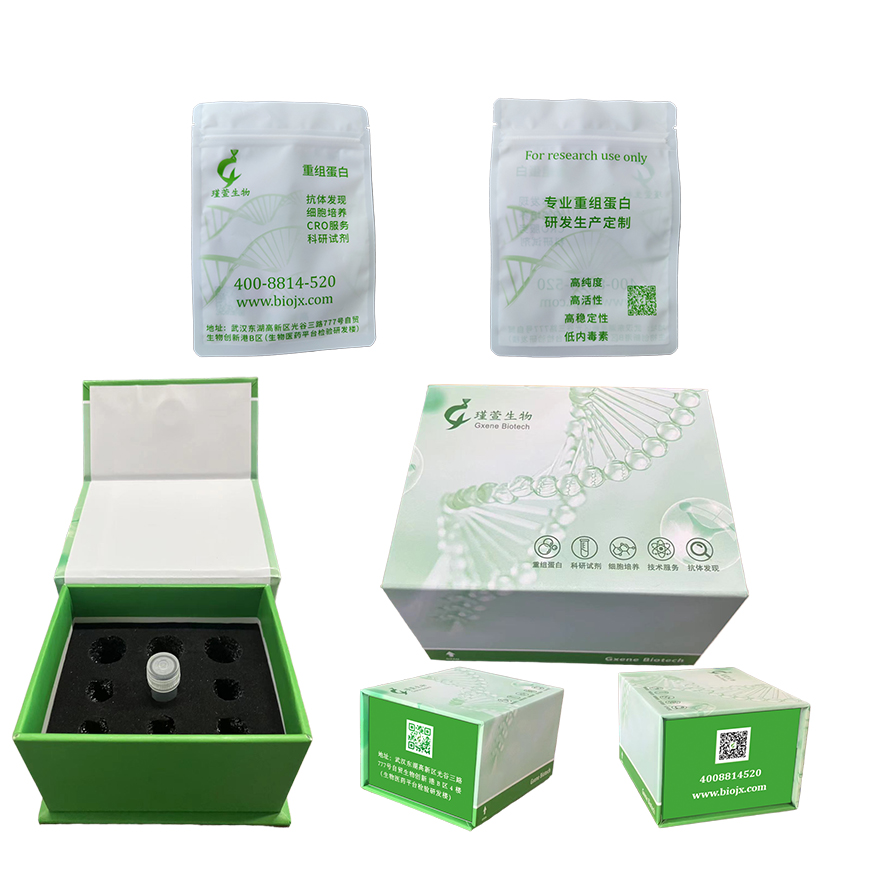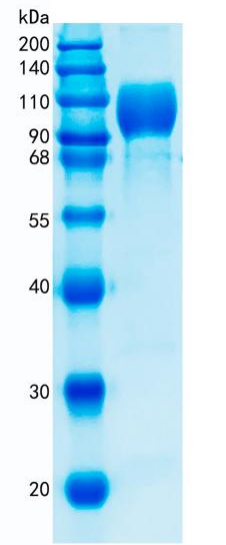



研究方向
IL-23R 蛋白在免疫反应中发挥着关键作用,因为它通过与 IL12RB1 结合形成白细胞介素 23 受体。它与 IL23 结合,并通过 Jak-Stat 信号级联触发 T 细胞、NK 细胞以及潜在的某些巨噬细胞/骨髓细胞的激活。IL23 参与先天性免疫和适应性免疫,并且可能有助于外周组织对感染的急性反应。此外,IL23 与自身免疫性炎症性疾病有关,并已被证明在肿瘤发生中发挥重要作用。当 IL12RB1 存在时,IL-23R 形成异二聚体,充当 IL-23 受体。它与 JAK2 相互作用,并且在 IL23 存在的情况下激活 STAT3。
Immobilized Human IL- 12B&IL-23A at 5μg/mL (100μL/well) can bind Human IL23R with a linear range of 4-135 ng/ml.
IL23R, also known as the IL23 receptor, belongs to the type I cytokine receptor family, Type 2 subfamily. It contains 2 fibronectin type-III domains and is expressed by monocytes, Th1, Th0, NK, and dendritic cells. Isoform 1 is specifically expressed in NK cells. IL23R associates with IL12RB1 to form the interleukin-23 receptor. It binds IL23 and mediates T-cells, NK cells, and possibly certain macrophage/myeloid cell stimulation probably through activation of the Jak-Stat signaling cascade. IL23 functions in innate and adaptive immunity and may participate in acute response to infection in peripheral tissues. IL23 may be responsible for autoimmune inflammatory diseases and be important for tumorigenesis. Genetic variations in IL23R are associated with inflammatory bowel disease type 17 (IBD17). IBD17 is a chronic, relapsing inflammation of the gastrointestinal tract with a complex etiology. Genetic variations in IL23R also can cause susceptibility to psoriasis type 7.